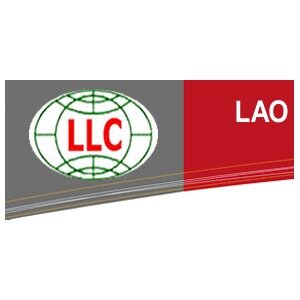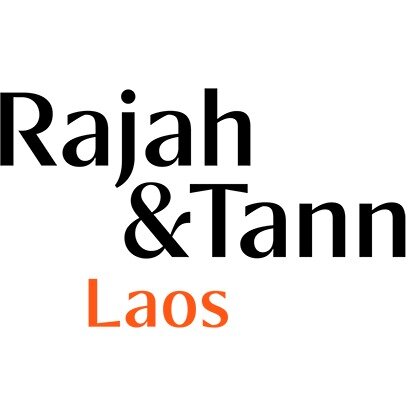Best Private Equity Lawyers in Laos
Share your needs with us, get contacted by law firms.
Free. Takes 2 min.
Or refine your search by selecting a city:
List of the best lawyers in Laos
About Private Equity Law in Laos
Private equity (PE) refers to investments made into private companies or the acquisition of public companies that results in their delisting from stock exchanges. In Laos, private equity is a developing sector, promoted as a means to stimulate business growth, facilitate foreign direct investment, and support local enterprises. With an emerging financial and corporate environment, Laos is gradually refining its legal framework governing mergers, acquisitions, and venture investment. While the sector is not as mature as in neighboring countries, new opportunities and legal mechanisms are becoming available for both local and foreign investors looking to participate in the Laotian market through private equity.
Why You May Need a Lawyer
Engaging in private equity transactions in Laos involves navigating a complex mix of laws, regulations, and business practices. Common situations where you may require legal help include:
- Structuring private equity deals and negotiating investment terms
- Performing legal due diligence on target companies
- Drafting or reviewing shareholder agreements, purchase agreements, and exit strategies
- Ensuring compliance with foreign investment regulations
- Handling cross-border transactions and remittance of funds
- Addressing tax implications of investments
- Dealing with local licensing, sector-specific restrictions, and regulatory approvals
- Resolving disputes related to investments or company management
- Protecting intellectual property and assets of portfolio companies
- Understanding and complying with anti-money laundering requirements
Given these complexities, consulting a lawyer with experience in Lao business and investment law is crucial for a smooth and compliant investment process.
Local Laws Overview
Lao private equity transactions are mainly governed by laws and regulations covering foreign investment, company registration, securities, and taxation. Some key aspects include:
- Investment Promotion Law: Sets out the rights, obligations, and incentives for investors, including sectors open to foreign investment, guarantees against nationalization, and repatriation of profits.
- Law on Enterprises: Regulates company formation, management, restructuring, and dissolution.
- Securities Law: Governs the issuance and trading of securities, important for private equity funds that may issue shares or need exit listings.
- Foreign Exchange Law: Oversees currency controls, the movement of capital, and requirements for foreign investors to transfer funds in and out of Laos.
- Tax Law: Sets out corporate income tax, capital gains tax, and possible tax incentives for qualifying investments.
- Sectoral Laws: Certain sectors like mining, energy, and telecommunications may have additional licensing or ownership limitations that impact private equity investments.
- Anti-Money Laundering Law: Imposes obligations on financial transactions to prevent illicit activities.
Regulatory approval processes, documentation requirements, and negotiation customs may differ notably from international standards, making local legal guidance especially important.
Frequently Asked Questions
What is private equity and how does it work in Laos?
Private equity involves investing in private companies or buying out public companies, usually to improve performance and eventually sell at a profit. In Laos, it often involves foreign investors partnering with local firms, subject to local investment and company laws.
Can foreigners invest in private equity in Laos?
Yes, foreigners can invest in Lao private equity deals, but they must comply with sector-specific ownership ceilings, minimum capital requirements, and obtain appropriate licenses and approvals.
Are there any restricted sectors for foreign private equity investment?
Yes, certain sectors such as mining, energy, media, and telecommunications may have restricted or prohibited foreign ownership. It is important to check current government regulations for each sector.
What legal structures are commonly used for private equity investments in Laos?
Typical structures include limited liability companies, joint ventures, and project companies with defined shareholder arrangements. The chosen structure depends on investment goals and compliance with local laws.
What are the major legal risks in Lao private equity deals?
Risks include regulatory uncertainties, changing laws, due diligence challenges, minority rights protection, dispute resolution procedures, and possible difficulties with currency repatriation or asset transfer.
How is due diligence conducted in Laos?
Due diligence typically covers legal, financial, and operational aspects. Lawyers review company registrations, licenses, contracts, compliance history, and any possible encumbrances or liabilities.
Can private equity firms exit their investment easily in Laos?
Exit options such as trade sales, initial public offerings, or recaps exist but may be affected by market depth, regulatory factors, and currency transfer restrictions. Planning the exit route is essential from the start.
What kind of government approvals are needed for private equity deals?
Depending on the sector and size of investment, approvals may be required from the Ministry of Planning and Investment, Bank of the Lao PDR, sector-specific ministries, and the Tax Department.
How are disputes resolved in Lao private equity transactions?
Parties may agree to resolve disputes through local courts, arbitration, or mediation. International arbitration is sometimes chosen for larger deals, but enforceability should be discussed with your lawyer.
Are there tax benefits for private equity investments in Laos?
The Investment Promotion Law provides tax incentives for eligible sectors and projects, including reduced profit tax, import duty exemptions, and other benefits if certain conditions are met.
Additional Resources
For further information and assistance, the following resources and organizations can provide support or guidance regarding private equity in Laos:
- Ministry of Planning and Investment (MPI): Main government agency overseeing investments and approving foreign-invested projects
- Bank of the Lao PDR: Regulates foreign exchange and monetary matters related to cross-border investments
- Lao Securities Commission: Supervises securities, listing, and capital markets
- Investment Promotion Department: Provides information on investment incentives, sectors, and application procedures
- Local and international law firms with Lao offices specializing in business and investment law
- Lao National Chamber of Commerce and Industry: Networking and information sharing among business stakeholders
- Relevant embassies or chambers of commerce for updates on business environment and bilateral investment treaties
Next Steps
If you are considering private equity investments or require legal advice in Laos, take the following steps:
- Clearly define your investment objectives, target sector, and possible partners
- Consult with a qualified Lao legal advisor specializing in private equity or business law at an early stage
- Request a legal feasibility study or risk assessment tailored to your proposed investment
- Prepare preliminary investment documents and perform thorough due diligence
- Engage in transparent negotiations with all stakeholders, ensuring your agreements comply with local laws and address key risks
- Obtain all required government approvals and make sure your funds are transferred through authorized banking channels
- Keep updated on regulatory changes and maintain open communication with your advisors throughout the investment cycle
Taking these prudent steps, in partnership with experienced legal counsel, will help safeguard your interests and improve the chances of a successful private equity venture in Laos.
Lawzana helps you find the best lawyers and law firms in Laos through a curated and pre-screened list of qualified legal professionals. Our platform offers rankings and detailed profiles of attorneys and law firms, allowing you to compare based on practice areas, including Private Equity, experience, and client feedback.
Each profile includes a description of the firm's areas of practice, client reviews, team members and partners, year of establishment, spoken languages, office locations, contact information, social media presence, and any published articles or resources. Most firms on our platform speak English and are experienced in both local and international legal matters.
Get a quote from top-rated law firms in Laos — quickly, securely, and without unnecessary hassle.
Disclaimer:
The information provided on this page is for general informational purposes only and does not constitute legal advice. While we strive to ensure the accuracy and relevance of the content, legal information may change over time, and interpretations of the law can vary. You should always consult with a qualified legal professional for advice specific to your situation.
We disclaim all liability for actions taken or not taken based on the content of this page. If you believe any information is incorrect or outdated, please contact us, and we will review and update it where appropriate.
Browse private equity law firms by city in Laos
Refine your search by selecting a city.












